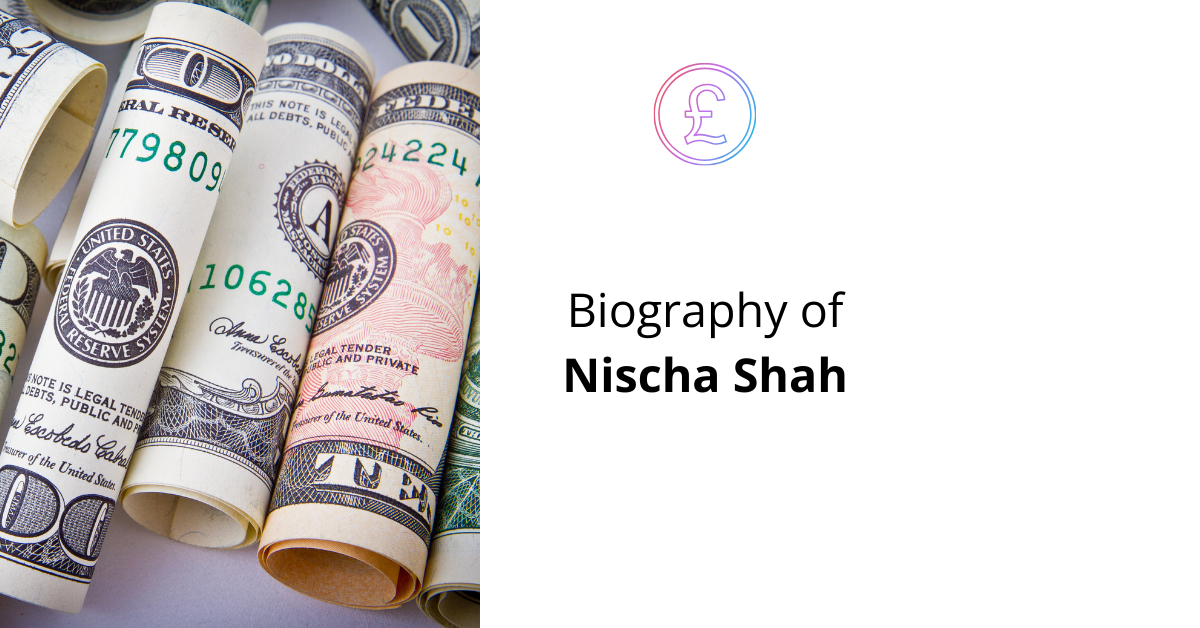Netflix is the world’s biggest online subscription video service provider.
Netflix has revolutionised the entertainment industry and is now present in over 190 countries.
Introduction-
In October 1991, Reed Hastings co-founded Pure Software along with his friends, Mark Box and Raymond Peck.
This company provided debugging software to the UNIX systems.
In August 1997, Pure Software was acquired by Rational Software for 750 million dollars.
This deal made Reed Hastings a millionaire and provided him with the funds to start a new company, Netflix.
Embarrassment-
During the 1990s, people used to watch movies by either visiting a movie theatre or renting cassettes.
In 1997, Reed Hastings rented an Apollo 13 cassette from a video store.
Later, he misplaced the cassette and failed to return it on time.
Reed Hastings returned the cassette after a period of six weeks, so he was levied a late fee of 40 dollars.
He was very embarrassed by this and so he hid this incident from his wife, Patricia Ann Quillin.
Innovative idea-
On one fine day, Reed Hastings was working out in a gym where he realised that the payment model of a gym is fair when compared to that of the cassette rentals.
In the gym, one can exercise as much as he wants after paying a monthly membership fee.
Then, an idea sparked in his mind by which he wanted to apply a similar payment model to the cassette rentals.
Reed Hastings saw the problem of late fees and realized that in future the cassettes will get replaced by DVDs and this gave the birth to a new business model, Netflix.
He shared his idea with his friend Marc Randolph.
During that time, Marc Randolph was very impressed by the online book selling business model of Amazon.com and longed to start a new business model similar to that of Amazon.
Whereas Reed Hastings wanted to find a solution to the high fees charged at the video stores.
But Marc Randolph had no idea regarding what to sell online and so he was convinced with the idea of Reed Hastings to rent DVDs online.
About Netflix-
Netflix has revolutionised the way we consume media in the digital age and provided a solution to the hassle of visiting the video stores.
In the initial days, Netflix allowed the users to select the movies and deliver them the movie DVDs, mostly within a business day.
Netflix also produces its own digital content.
Netflix could be viewed on many devices like computers, mobile phones, tablets, video game consoles, Blu-ray Disc players, smart TVs, etc.
Birth of Netflix-
Netflix was founded by Wilmot Reed Hastings Jr. and Marc Bernays Randolph on August 29, 1997 in Scotts Valley, California with 30 employees.
Reed Hastings provided an initial investment of 2.5 million dollars.
Netflix started as an online DVD rental store and was the first one in the world to do so.
During that period, the VHS-cassettes were getting out-dated and were getting replaced by the much better DVDs.
DVDs in comparison to the VHS tapes were lightweight, sturdy and economical.
Initially, they posted a DVD to Reed Hastings’s house and ascertained that the DVD reached the house in the right condition.
Reed Hastings and Marc Randolph decided to distribute DVDs directly through the mail to the customers.
Right nomenclature-
Reed Hastings and Marc Randolph named their company very futuristically, as Netflix, by combining two words- net and flick.
Here, net refers to the internet and flix refers to flicks, meaning movies and this name helped immensely in the branding of the company.
Starting small-
Initially, Netflix had 925 titles and 30 employees and it worked on a pay-per-rent model.
In September 1999, they introduced the monthly subscription model.
By subscribing to this model, one could borrow several DVDs and become free from the headaches of due date, shipping charges and late fee.
By the year 2000, Netflix gained 300,000 subscribers, thanks to their excellent service.
IPO-
On May 29, 2002, Netflix offered its initial public offering (IPO) and its each share was sold for US$15.00.
In 2004, Marc Randolph retired from Netflix.
By 2005, Netflix had 35,000 films and was shipping 1 million DVDs on a daily basis, this mirrors its popularity at that time.
Impact of the internet-
Around this time, the world was getting accustomed to the internet and so, Netflix decided to provide an online streaming service.
But this decision was delayed for a few years owing to the slow speeds of the internet during those times.
Finally, Netflix introduced the subscription based online video streaming and video on demand services during 2007.
With the passage of time, Netflix became very popular thanks to the great internet speeds and advancements in technology.
Netflix discontinued the pay-per-rental system in 2000 when they noticed that many consumers were switching online.
Facing rejection-
In 2000, Netflix was operating at a loss even though it acquired 300,000 subscribers.
So, Reed Hastings offered to sell Netflix to Blockbuster for 50 million dollars.
And he also offered to rename Netflix to Blockbuster.com and maintain their online business.
But Blockbuster rejected this offer.
Netflix became profitable in 2003.
During this same year, it crossed one million subscribers.
Blockbuster finally realised that Netflix was its real threat after Netflix went public.
In order to compete with Netflix, Blockbuster announced its own DVD by mail program in 2004.
And in April of the same year, Blockbuster announced its plan to expand into the Video on-demand market.
Importance of right timing-
If Blockbuster would have started this business two years earlier than Netflix, they would have easily surpassed Netflix.
Video streaming service-
Netflix wanted to start its internet video streaming service in 2005, but it got delayed until the year 2007.
The internet streaming feature was offered for free of cost as a bonus to the Netflix subscribers.
In the initial days, the content was restricted to 6 to 18 hours per month based on the subscription plan.
During the year 2007, the subscribers rose to 7.5 million and Netflix made a profit of 1.2 billion in the same year.
First mover advantage-
As Netflix is the first company in the internet video streaming field, it succeeded in securing many exclusive deals with several media companies.
Its first contract was made on October 1, 2008 with Starz, an American premium cable and satellite television network for 20 million dollars.
Thanks to this deal, Netflix gained access to stream more than 2500 new films, which included many hit Hollywood films.
During the same year, Netflix was also made available to the Xbox 360.
PlayStation 3 played an important role in popularising Netflix.
By the year 2010, Netflix accounted for almost 30 per cent of the internet usage during the peak hours in America and during this same year, Netflix started to expand globally starting with Canada.
In 2011, they expanded to South America and Caribbean and a year later they expanded to Europe.
Hulu and Amazon-
From the year 2010, Netflix began to face stiff competition from Hulu and Amazon with Hulu offering the Hulu Plus program and Amazon offering the Amazon Prime Video.
Creating original content-
Reed Hastings was inspired by the cable networks which initially started on the others content but eventually grew to produce their own originals.
In 2005 itself when Netflix was shipping DVDs, Reed Hastings wanted to produce his own original content but was unable to do so because at that time Netflix was a small scale company.
In 2011, Netflix decided to produce its original content as the costs for licensing the content was going uphill.
On 15 March 2011, Netflix announced its first production, House of Cards, a political thriller.
For the first two seasons of House of Cards, Netflix spent one hundred million dollars.
Netflix gained huge popularity thanks to the success of House of Cards and many people started to associate House of Cards with Netflix.
Qwikster-
On September 18, 2011, Reed Hastings announced a new company, Qwikster to handle the DVD-by-mail service of Netflix.
This was not well received by the people because it required paying two membership fees if one wanted both DVDs and online streaming services of Netflix.
Qwikster was a failure and was shut down just after one month of its announcement.
During the year 2011, Netflix lost around 800,000 subscribers which caused its stocks to plummet.
Winning with originals-
On February 1, 2013, House of Cards season 1 was released and on 11 July 2013 Netflix also released Orange Is the New Black web television series.
These shows were a huge hit and they garnered many positive reviews.
Thanks to these hits, Netflix tasted a huge success once again and was proved as a competent content creator.
Netflix also made a deal with Marvel Television as part of its content expansion plan.
Entering into movies-
Netflix ventured into the film industry by producing Beasts of No Nation, an American-Ghanaian war drama film.
Netflix is planning a whopping 8 billion dollars to develop content around the world to compete with the other great shows on the other networks.
100 billion dollars-
By 2018, Netflix garnered more than 137 million subscribers.
Now, Netflix has one of the largest user bases in the world and its market cap has crossed 100 billion dollars.
Apart from streaming third party content, Netflix also produces its own content.
Binge viewing-
Unlike regular cable televisions, Netflix releases all the episodes of a show at a time.
This gives the freedom to the viewer to watch all the episodes of a show at a time.
With the regular television, the viewer must wait for a week or so to view the next episode of the show but with binge viewing Netflix did something different and empowered the consumer.
Smart algorithms-
Netflix employs smart algorithms to recommend videos to the consumers based on their interests.
Netflix invested a huge sum of money in the algorithms so that the right content is featured to the right people and this algorithm also makes it easier to explore the video library.
Philanthropy-
After completing his college education, Reed Hastings served as a high school math teacher in Swaziland, a country in Southern Africa.
Later, he became a philanthropist when he became a businessman.
On July 11, 2006, Reed Hastings donated $1 million to Beacon Education Network, a non-profit charter management organization and has also donated millions of dollars for the betterment of the education system.
In 2012, he also signed up for The Giving Pledge founded by Warren Buffett and Bill Gates and committed to give more than half of his fortune to this charitable organization.
Feedback from readers is highly appreciated; it helps me to deliver better results to you.
Frequently Asked Questions (FAQs)
What is the story behind Netflix?
The story behind Netflix is very interesting.
Netflix was born when Reed Hastings grew frustrated with a cassette rental service.
On August 29, 1997, Reed Hastings along with Marc Bernays Randolph founded Netflix.
Initially, Netflix started out as an online DVD rental store and over the time it evolved into an over-the-top content platform and production company.
Why has Netflix been so successful?
Netflix is a wildly successful streaming service and the main reasons for its success are-
• Affordability- Netflix offers a variety of pocket friendly plans.
• Popular productions- Offering a wide range of popular “Netflix Original” like BoJack Horseman, Stranger Things, etc.
• Netflix’s success of the DVDs delivery business in 2000s greatly helped in its expansion.
When did Netflix become successful?
Netflix became successful in 2003 and prior to this Netflix was incurring losses.
In 2003, Netflix posted its first ever profit of US$6.5 million.
How did Netflix grow so fast?
Yes, Netflix grew very fast and the main reasons for this growth are-
• In the initial stages of Netflix, the DVD players started to become very popular in the United States and this helped the Netflix’s DVD rental business.
• Later, as the internet became more affordable and speedier, Netflix’s streaming business grew rapidly.
Who is Netflix owned by?
Will Netflix be successful in the long term?
Yes, definitely Netflix will be successful in the long term.
The main reasons for this are-
• The global internet access is increasing at a rapid pace which means more people can access Netflix’s services.
• Netflix is at an advantage as it is present in over 190 countries, it has a wide business reach.



2 Comments
Kaushik Mahajan · February 25, 2022 at
Cool Article Naveen 🙂
Naveen Reddy · February 26, 2022 at
Thank you very much Kaushik.